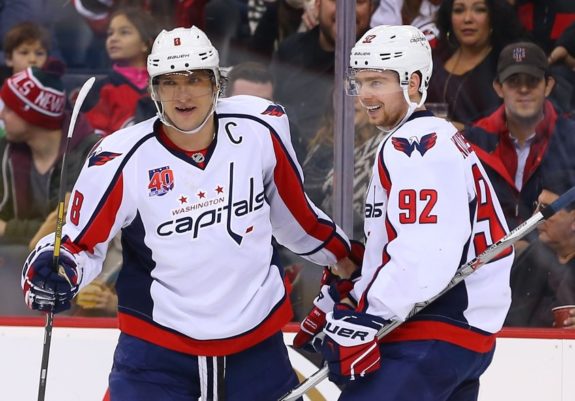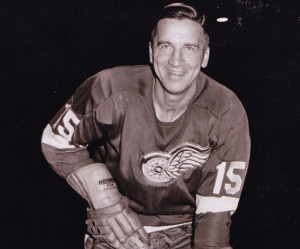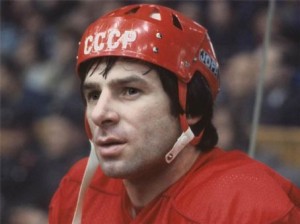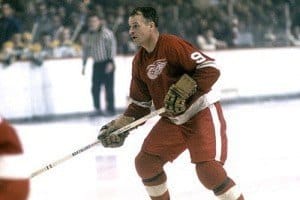This season, Alex Ovechkin is putting the finishing touches on another fine campaign. He finished 4th in the NHL in points, and won his fifth goalscoring title. That puts him in a tie for third all-time with Maurice Richard, Wayne Gretzky, Gordie Howe, and Charlie Conacher. Only Bobby Hull (7) and Phil Esposito (6) have more.
Coming into this season, many questioned whether Ovechkin could continue his offensive dominance under the tougher defensive system of Barry Trotz. Many (erroneously) pointed towards his -35 in 2013-14 and said he was a lazy floater that would never change. He finish +10 this season (not that +/- really matters at all).

Ovechkin will never be a great, or even good, defensive player. It’s not an efficient use of his talent. He’s much more useful to the Capitals when he’s trying to score goals. And score goals he does.
Bobby Hull is the clear cut #1 LW of all time, and Alex Ovechkin has a strong claim to the #2 position. He could catch Hull before his career is over, but he has a good amount of work to do.
The Raw Numbers
The four men with an argument for the position of 2nd best LW ever are Ovechkin, Ted Lindsay, Frank Mahovlich, and Valeri Kharlamov. The best method to compare scoring across eras is called VsX. A complete explanation of it can be found here, but the core of the system is this: each season, a player receives a “score” that is equal to his point total divided by a benchmark of one of the league’s top scorers, typically the #2 scorer.
For example, in 2014-15, the benchmark is John Tavares’ 86 points. For this season, Ovechkin is assigned a score of 94.2 (81/86). Below is the seven year total (the best representation of a player’s peak) of each player’s best seasons:
Note, the data on Kharlamov comes from his time in the Soviet league. These numbers alone would indicate that Ovechkin is safely #3, but still pretty far behind Ted Lindsay. Scoring isn’t everything, however. Postseason all-star teams and voting records can help form the picture as well:
The first thing that jumps out is Ovechkin received much more Hart recognition than Lindsay or Mahovlich. This is because Lindsay and Mahovlich played on some star studded team with teammates even better than them (more on that later). Kharlamov’s MVP finishes shouldn’t be taken at face value, because they were in a league that did not contain the majority of the world’s best players.

Ovechkin and Lindsay are close in terms of AS teams, but once his career is over, Ovechkin will undoubtedly have more. He’s basically guaranteed to receive another 1st Team selection this year, and will add another Hart finish as well.
Let’s go back to the numbers, and add some important context to them.
The Effect of Linemates on Scoring
While all four players have the talent to score by themselves, they’ve received varying degrees of help along the way. Here’s a breakdown of the number of Hall of Famers each player regularly played with:
Very different story. It’s not totally fair to say Ovechkin has played with 0 HHOFers, since most of his teammates have not finished their careers yet. However, looking at Washington’s roster, the only player with a chance to make the Hall would be Nicklas Backstrom, and he still has a lot of work to do to reach that level.
#Caps Ovechkin RT @ArikParnass: This might be the smartest comment I've ever seen in a Hockey News mailbag. pic.twitter.com/MMZDiPKGCJ
— Neil Greenberg (@ngreenberg) May 9, 2014
Lindsay played basically his whole career with the Red Wings, with the same four HHOFers. Mahovlich played on three different teams, all of which had a number of Hall of Famers on them. Kharlamov did not play with any HHOFers, but he played with many IIHF Hall of Famers.
Considering Mahovlich had clearly worse numbers, and played with a bunch of Hall of Famers, he can be eliminated from the conversation for #2.

Kharlamov can also be eliminated because he played with better players (his longtime linemates Vladimir Petrov and Boris Mikhailov have better scoring numbers than him), and had worse numbers that didn’t even come in a league that had the world’s best players in it.
Related: Valeri Kharlamov is the Most Overrated Player in History
That leaves Lindsay and Ovechkin in the conversation for #2 all time. It’s clear that Ovechkin played with significantly worse linemates than Lindsay, but how much does that change the numbers?
Digging Deeper into the Numbers
Ted Lindsay didn’t just play with four HHOFers, he played on a line with two absolute legends. Most notably, he spent the majority of his career with Gordie Howe on the opposite wing. The center was either Sid Abel or Alex Delvecchio, both HHOFers.
To understand how much better Gordie Howe is than Ovechkin’s linemates, consider the following table. It shows how many better seasons (in terms of VsX) Gordie Howe had compared to the best season of each of Ovechkin’s most common linemates in his career:
Let that sink in. Gordie Howe had 14 seasons in his career that were better than Ovechkin’s best linemate’s best season. Imagine what Ovechkin’s numbers would look like if you put Sidney Crosby on his line. Then consider that Gordie Howe is even better than Crosby.

How many more points would Ovechkin have per season with Howe on his wing? 15? 30? Who knows.
How about 8 points? Add 8 points to each of Ovechkin’s point totals, which I think we can all agree is much lower than what the actual impact would be, and the numbers change a lot. Ovechkin’s score increases to 751, a clear step above Lindsay’s 738.5.
That doesn’t even get into the fact that Lindsay had a HHOFer at center as well. And when he was traded to Chicago for 3 years at the end of his career, he played with Ed Litzenberger and Tod Sloan, who both have multiple top 10s in points.
Not All About the Points
One thing that Lindsay does have going for him is that he was a very physical, tenacious player. Ovechkin hit like a wrecking ball early in his career, but that part of his game has tapered off. This advantage helps close the gap for Lindsay, but the offensive advantage for Ovechkin is just too large.
The scary thing is that Ovechkin is just 29 years old. He still has a number of highly productive years ahead of him, and very well could catch and pass Bobby Hull to become the best LW ever.



